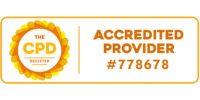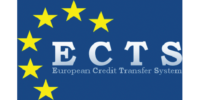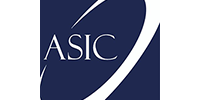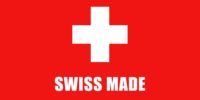UKeU Certified
Full Accreditation & Recognition
Micro Degree United Kingdom is a professional micro-credentials course from UKeU® (UK eUniversity). Learners can transfer credits and tuition fees when progressing to an academic degree.

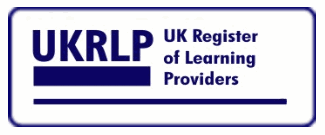
UK Register of Learning Providers

OTHM United Kingdom
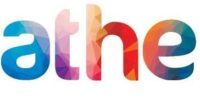
ATHE United Kingdom

Qualifi United Kingdom
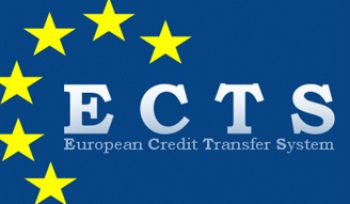
ECTS
Contact us at the LAS office nearest to you or submit a free consultant online.
Practice and keep practicing with Micro Degree United Kingdom! Here, I have access to the latest knowledge and skills, along with support to connect with many professionals in my field. I love it!

Recognition of our micro-credential in European Union
The European Union (EU) Council adopted a Recommendation on a European approach to micro-credentials for lifelong learning and employability on 16 June 2022. The Recommendation aims to promote the creation, implementation, and recognition of micro-credentials across institutions, industries, and national borders. Micro-credentials validate the learning outcomes of the short courses and make them easily recognized all over the EU and could be transferred credits into the academic degrees.
All Micro Degree from UKeU adhere to the Recommendations on a European approach to micro-degree for lifelong learning and employability and are credit-bearing. This ensures our Micro Degree are more easily recognized across Europe.
‘Micro-credential’ means the record of the learning outcomes that a learner has acquired following a small volume of learning. These learning outcomes will have been assessed against transparent and clearly defined criteria. Learning experiences leading to micro- credentials are designed to provide the learner with specific knowledge, skills and competences that respond to societal, personal, cultural or labour market needs.
Micro-credentials are owned by the learner, can be shared and are portable. They may be stand–alone or combined into larger credentials. They are underpinned by quality assurance following agreed standards in the relevant sector or area of activity
In short, micro-credentials are short courses that you can earn an official credit for.
(Ref. 5a – Definitions – Council Recommendation on a European approach to micro-credentials for lifelong learning and employability)
Our micro-credential is accredited by both the independent accreditation bodies of the UKeU and Partner University.
Besides, our micro-credential programs is meet full the requirements of EU’s micro-credentials and:
- Annex IV of the European Qualifications Framework Recommendation.
- The Standards and Guidelines for Quality Assurance in the European Higher Education Area.
- The European Quality Assurance Reference Framework (the EQAVET Framework) in the field of vocational education and training.
- ISO 21001 – Management systems of Higher Education Institutions
Quality:
Our micro-credential is a part of internal and external quality assurance. The quality of our courses is the same as our accredited academic programs.
Our internal quality assurance covers all the following elements:
- the overall quality of the micro-credential itself, based on the standards referred to below;
- the quality of the course, where applicable, leading to the micro-credential;
- learners’ feedback on the learning experience leading to the micro-credential and;
- peers feedback, including other providers and stakeholders, on the learning experience leading to the micro-credential.
Transparency:
Our micro-credentials are measurable (number of ECTS credits & UK credits), comparable and understandable (Level of qualification), with clear information on learning outcomes, workload, content, level, and the learning offer, as relevant.
Relevance:
Our micro-credentials is a part of academic degree programs and updated with the current professional knowledge.
Valid assessment:
All our micro-credentials have transparent criteria for assessment. These criteria are announced and guided in the short course syllabus.
Learning pathways:
Our micro-credentials are clear learning pathways. Please read more HERE
Recognition:
Our micro-credentials are designed for maximizing recognition in both the labor market and the universities.
Portable:
Our courses certified owned by our learners and may be stored in our UMS (University Management Systems) and shared easily.
Learner- centred:
Our micro-credentials are designed to meet the needs of the target group of learners.
As European standard elements to describe micro-credentials are recommended as a resource to support the implementation, we put these elements to describe your micro-credential:
- Identification of the learner
- Title of the micro-credential
- Country(ies)/Region(s) of the issuer
- Awarding body(ies)
- Date of issuing
- Learning outcomes
- Notional workload needed to achieve the learning outcomes (in ECTS credits)
- Level of the learning experience leading to the micro-credential (EQF, RQF)
- Type of assessment
- Form of participation in the learning activity
- Type of quality assurance used to underpin the micro-credential
- Prerequisites needed to enrol in the learning activity
- Supervision and identity verification during assessment (unsupervised with no identity verification, supervised with no identity verification, supervised online, or onsite with identity verification)
- Grade achieved
- Integration/stackability options (stand-alone, independent micro-credential/integrated, stackable towards another credential)
The use of the European standard elements to describe micro-credentials does not, in itself, imply official validation or recognition, but is a key enabler for it.
Automatically transfer:
Our certified could transfer all the credits and 50% tuition fees when joining to the academic programs of the UKeU and Partner University.
All the micro-credential certifications show the corresponding Level. These Levels can be converted to a university partners’ program and their university partners corresponding to:
- Micro Degree UK Level 4 and 5 Awards could transfer credits to Diploma’s Programs.
- Micro Degree UK Bachelor Award could transfer credits to Bachelor’s Programs.
- Micro Degree UK Master Award could transfer credits to Master’s Programs.
- Micro Degree UK Doctoral Award could transfer credits to Doctoral Programs.
Not automatic transfer:
Although complying with the European recommendations in micro-credentials regulation, this is only a necessary condition to be recognized and transfer credits to European universities. Universities have their own authority to assess and recognize credits from SCN and UKeU. Please consult with the university you want to work with before studying our program.
The process of identifying, documenting, and evaluating prior experience connected to a study program is known as APEL (Accreditation of Prior Experiential Learning).
APEL.Q (Accreditation of Prior Experiential Learning for Qualifications) is the world’s first independently implemented program for converting work experience into UK national qualifications, launched by the Schweizer Institut für Hochschulbildung in Management und Innovation.
With the APEL.Q process, the learner could be recognized the experiences and get full accredited academic degree within 09 months with save over 80% tuition fees. Read more about APEL.Q HERE
After finish our short courses, you will get LAS certified with micro-credentials,
With this certification, you will eligible to apply to the APEL.Q process and get an academic degree within 09 months and save more than 80% tuition fees.
Quality control
International Standards Board
The International Standard Board, established through a collaboration between UKeU® and SIMI Swiss, plays a key role in defining industry standards for Micro Degree United Kingdom and in ensuring a seamless credit transfer pathway into our academic programs.
-
Prof. Dr. Geoffrey Williams
Research Board Chairman at Swiss Information and Management InstituteRead more -
Prof. Dr. Daniel Steve Villarreal
Dean of EduSchool at Swiss Information and Management InstituteRead more
Our services
What we offer
Learn – Recognized – Transfer
 UK Micro Degree Courses
UK Micro Degree Courses
Courses designed by industry experts and UKeU® to develop and strengthen the essential professional skills required to thrive in today’s most in-demand sectors.
 Transfer Credits when study Degrees
Transfer Credits when study Degrees
APEL.Q allows you to convert our certification and relevant university-level knowledge, skills, and experience into credits when getting our degrees.
 Transfer Fees when study Degrees
Transfer Fees when study Degrees
You could transfer credits and fee from professional certified to full accredited academic programs when study at same levels.
SHORT COURSES NETWORK
Recognition & Accreditation
We are proud that our professional certification courses are fully accredited and could transfer credits and fees.


